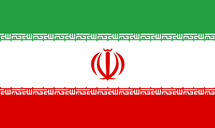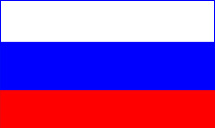
Márton Gyöngyösi
Party president
Jobbik is a neo-Nazi, neo-fascist political party in Hungary that combines militant ethno-nationalism with anti-Semitism and anti-Roma racism.
April 5, 2023: U.S. Ambassador David Pressman hosts Gyöngyösi at a Passover seder at the U.S. embassy alongside Hungarian Jewish leaders, as well as academics and artists. Gyöngyösi is the only politician at the event. Hungarian leaders condemn Gyöngyösi’s inclusion because of his history of antisemitic remarks, including calling for a national registry of Hungarian Jews. Gyöngyösi posts an apology to Twitter for his past remarks and thanks Pressman for the invitation.Alexander Faludy, “US ambassador invites Jobbik leader who questioned Holocaust death toll to embassy seder,” Jewish News (London), April 13, 2023, https://www.jewishnews.co.uk/us-ambassador-hosts-jobbik-leader-who-questioned-holocaust-death-toll-at-embassy-seder/; “US Ambassador under Fire for Inviting Far-right Leader to Jewish Holiday,” Hungary Today, April 11, 2023, https://hungarytoday.hu/us-ambassador-under-fire-for-inviting-far-right-leader-to-jewish-holiday/; Márton Gyöngyösi, Twitter post, April 7, 2023, 4:26 p.m., https://twitter.com/GyongyosiMarton/status/1644436505270579233; Márton Gyöngyösi, Twitter post, April 12, 2023, 5:24 a.m., https://twitter.com/GyongyosiMarton/status/1646081967530582016.
Jobbik is a neo-fascist Hungarian political party that combines militant ethno-nationalism with antisemitism and anti-Roma racism. A Hungarian court ruled in January 2014 that Jobbik may be referred to as “neo-Nazi” in Hungary.Hungarian historian Laszló Karsai was brought before the court because he had called Jobbik a neo-Nazi party. But a Hungarian appeals court dismissed the charge, justifying Karsai’s statement as an exercise of freedom of speech. “Gerichtsurteil in Ungarn: Jobbik darf als Neonazipartei bezeichnet werden,” Spiegel Online, January 28, 2014, http://www.spiegel.de/politik/ausland/urteil-in-ungarn-jobbik-darf-als-neonazi-partei-bezeichnet-werden-a-945998.html. Jobbik previously described itself as a “principled, conservative and radically patriotic Christian party” whose “fundamental purpose” is the protection of “Hungarian values and interests.”“Jobbik - The Movement for a Better Hungary,” Facebook, accessed September 11, 2014, https://www.facebook.com/JobbikEnglish?sk=info. Jobbik believes that Hungarian diaspora communities face discrimination in their host countries. The party has called for Hungarian communities in neighboring states to receive territorial autonomy if they form a local majority. Jobbik has stated all other Hungarian diaspora communities should receive “cultural autonomy,” which would allow them to fully express their cultural heritage without persecution.“POLICIES,” Jobbik, accessed February 27, 2018, https://jobbik.com/policies. Domestically, Jobbik’s 2018 platform called for stricter policing of “the Gypsy community,” including by “volunteer organizations,” ending all development funds directed at Romani communities, and ending ethnic-based affirmative action.“POLICIES,” Jobbik, accessed February 27, 2018, https://jobbik.com/policies.
In 2002, a group of nationalist Catholic and Protestant university students established the precursor to Jobbik, the Right-Wing Youth Association (Jobboldali Ifjúsági Közösség), as an alternative to the nationalist, far-right Hungarian Justice and Life Party (Magyar Igazság és Élet Pártja or MIÉP) after MIÉP failed to win any seats in the 2002 election.András Kovács, “The Post-Communist Extreme Right: The Jobbik Party in Hungary,” Right-Wing Populism in Europe: Politics and Discourse, eds. Ruth Wodak, Brigitte Mral, Majid KhosraviNik (New York: Bloomsbury, 2013), 224, https://books.google.com/books?id=Wrw8gC8vCnUC&printsec=frontcover&source=gbs_atb#v=onepage&q&f=false. Jobbik was officially founded in October 2003 as a political party.Zselyke Csaky, “Hungary: Jobbik and the ‘Enemy Within’,” Freedom House, October 9, 2012, https://freedomhouse.org/blog/hungary-jobbik-and-%E2%80%98enemy-within%E2%80%99.
Jobbik received 14.7 percent of the votes in the 2014 European Parliament elections, giving it three seats.“Hungary’s right-wing dominates EU polls,” EUbusiness, May 25, 2014, http://www.eubusiness.com/news-eu/vote-hungary.w8q. However, two of the elected Members of the European Parliament (MEPs)—Béla Kovács and Krisztina Morvai—eventually left Jobbik, resuming their MEP functions as non-attached members.“Krisztina Morvai,” European Parliament, accessed December 5, 2018, http://www.europarl.europa.eu/meps/en/96661/KRISZTINA_MORVAI/cv#mep-card-content; “Jobbik Recalls MEP Krisztina Morvai,” Jobbik, accessed December 5, 2018, https://www.jobbik.com/jobbik_recalls_mep_krisztina_morvai (website discontinued); “Béla KOVÁCS,” European Parliament, accessed December 5, 2018, http://www.europarl.europa.eu/meps/en/102887/BELA_KOVACS/home; “Statement of Jobbik on AENM,” Jobbik, accessed December 5, 2018, https://www.jobbik.com/statement_of_jobbik_on_aenm (website discontinued).
In April 2014, Jobbik received 1 million votes (20.54 percent, an increase of 3.8 percent from the previous election) in the Hungarian parliamentary elections, making it Hungary’s third largest party in the National Assembly.Cas Mudde, “The 2014 Hungarian parliamentary elections, or how to craft a constitutional majority,” Washington Post, April 14, 2014, https://www.washingtonpost.com/news/monkey-cage/wp/2014/04/14/the-2014-hungarian-parliamentary-elections-or-how-to-craft-a-constitutional-majority/. Jobbik began moderating its image shortly before these electoral victories.
In 2013, Jobbik leader Gábor Vona announced that his party would begin moving toward the political center and labeled Jobbik as the “people’s party.” In the spring of 2016, Vona removed several of his party’s more radical members.“The Far-Right Hungarian Party Jobbik Is Moderating. Is That a Good Thing?,” Freedom House, October 4, 2016, https://freedomhouse.org/blog/far-right-hungarian-party-jobbik-moderating-good-thing. While many extremists continue to hold positions of power within the organization, Jobbik’s most radical supporters have balked at the party’s new platforms.“The Far-Right Hungarian Party Jobbik Is Moderating. Is That a Good Thing?,” Freedom House, October 4, 2016, https://freedomhouse.org/blog/far-right-hungarian-party-jobbik-moderating-good-thing. In a sign of weakening support, Jobbik received only 2 percent of votes during 2016 by-elections.“The Far-Right Hungarian Party Jobbik Is Moderating. Is That a Good Thing?,” Freedom House, October 4, 2016, https://freedomhouse.org/blog/far-right-hungarian-party-jobbik-moderating-good-thing.
In Hungary’s April 2018 parliamentary elections, Jobbik came in a distant second to the ruling Fidesz party, earning 19 percent of the vote to receive 26 seats. This marked a 1 percent decrease in votes for Jobbik from the 2014 election but an increase of three additional seats."Tájékoztató adatok a választáson megjelentek számáról és arányáról," National Election Office, April 8, 2018, http://valasztas.hu/dyn/pv18/szavossz/hu/napind.html. Although Jobbik became the leading opposition party, Vona resigned as chair because his efforts to moderate the party failed to significantly improve electoral results.Sean Lambert, “Movement for a Better Hungary (Jobbik),” Orange Files, last modified October 29, 2018, https://theorangefiles.hu/movement-for-a-better-hungary-jobbik/. Jobbik subsequently changed its organizational structure to a shared presidency with President Tamás Sneider and Executive Vice President Márton Gyöngyösi to “further enhance the party’s democratic and grassroots character.”“Tájékoztató adatok a választáson megjelentek számáról és arányáról,” National Election Office, April 8, 2018, http://valasztas.hu/dyn/pv18/szavossz/hu/napind.html; “Hungary Jobbik leader Vona tenders resignation after election defeat,” Reuters, April 8, 2018, https://www.reuters.com/article/us-hungary-election-jobbik/hungary-jobbik-leader-vona-tenders-resignation-after-election-defeat-idUSKBN1HF0Z4 (website discontinued).; “Jobbik’s brief history,” Jobbik, accessed December 5, 2018, https://www.jobbik.com/short_summary_about_jobbik (website discontinued). In January 2020, Jobbik elected Péter Jakab as its new president, while Gyöngyösi continued as executive vice president and a member of the European Parliament.“Party leadership - Jakab Péter and Márton Gyöngyösi,” Jobbik, February 7, 2020, https://www.jobbik.com/party_leadership_party_chairman. After Jobbik won only nine seats in Hungary’s April 2022 elections, Jakab won re-election as Jobbik’s president but resigned that June.Dániel Deme, “Scandal-hit Member of Hungarian Pre-election Opposition Coalition Péter Jakab Resigns,” Hungary Today, June 9, 2022, https://hungarytoday.hu/scandal-hit-member-of-hungarian-pre-election-opposition-coalition-peter-jakab-resigns/. Jobbik elected Gyöngyösi as its president in July 2022. He promised to develop Jobbik as a pro-Europe party.“Following Internal Clashes Nationalist Jobbik Elects New Leader,” Hungary Today, July 4, 2022, https://hungarytoday.hu/following-internal-clashes-nationalist-jobbik-elects-new-leader/. Jobbik continues to present itself as a mainstream rightwing party and attempt to shed its far-right and antisemitic image. Nonetheless, Hungarian critics, particularly in the Jewish community, remain suspicious of Jobbik’s intentions.Shaun Walker, “Does electing a leader with Jewish roots prove Jobbik has changed?,” Guardian (London), February 12, 2020, https://www.theguardian.com/world/2020/feb/12/electing-leader-jewish-roots-jobbik-changed-hungary-shift; Marton Dunai, “Hungarian far-right leader rejects anti-Semitism charge,” Reuters, April 13, 2015, https://www.reuters.com/article/us-hungary-farright/hungarian-far-right-leader-rejects-anti-semitism-charge-idUSKBN0N41NY20150413.
Jobbik has described itself as a “principled, conservative and radically patriotic Christian party” whose “fundamental purpose” is the protection of “Hungarian values and interests.”“Jobbik - The Movement for a Better Hungary,” Facebook, accessed September 11, 2014, https://www.facebook.com/JobbikEnglish?sk=info. Its ideology is neo-fascist, combining militant ethno-nationalism with antisemitism and anti-Roma racism. A Hungarian court ruled in January 2014 that Jobbik may be referred to as “neo-Nazi” in Hungary.Hungarian historian Laszló Karsai was brought before the court because he had called Jobbik a neo-Nazi party. But a Hungarian appeals court dismissed the charge, justifying Karsai’s statement as an exercise of freedom of speech. See “Gerichtsurteil in Ungarn: Jobbik darf als Neonazipartei bezeichnet werden,” Spiegel Online, January 28, 2014, http://www.spiegel.de/politik/ausland/urteil-in-ungarn-jobbik-darf-als-neonazi-partei-bezeichnet-werden-a-945998.html.
The party also advocates a militant revanchism and seeks the “reunification” of the Hungarian nation and a revision of the 1920 Treaty of Trianon, the post-World War I peace treaty between the Allied states and the Kingdom of Hungary. The treaty determined the borders of present-day Hungary, granting the new country only 36 percent of the kingdom’s pre-war population. Jobbik's Greater Hungarian irredentist claims are also reflected in pleas for cross-border ethnic self-determination. For example, the party demands “territorial autonomy“ for parts of Romania with large Hungarian populations, and desires to make Transcarpathian Ukraine an independent Hungarian district. Since a quarter of ethnic Hungarians live outside the country, Jobbik dedicates itself to supporting the cause of significant Hungarian minority populations abroad. In effect, Jobbik stirs up ethnic hatred in neighboring countries. In March 2014, in response to a Hungarian nationalist demonstration in the Romanian town of Târgu Mureș/Marosvásárhely, Romanian President Traian Băsescu publicly asked for an entry ban on Jobbik members to Romania.Concurrently, Moldova’s government accuses Romania of destabilizing the country. See “Băsescu spielt die Nationalismus-Karte,” EuroTopics.net, March 13, 2014, http://mobile.eurotopics.net/m-de/ps/top/detail/ARTICLE139989; Alla Skvartova, Centrum für angewandte Politikforschung an der LMU München, Country Report: Moldova, accessed August 14, 2014, 11-13, http://www.cap.uni-muenchen.de/download/2003/2003_Skvartova.pdf.
Jobbik has previously glorified Hungarian fascist and Nazi collaborator Miklós Horty. In 2011, Jobbik stated on its website’s homepage:
“Just after the tragedy of Trianon Hungary succeeded in a very fast consolidation. The Horthy-era released positive élan for the nation… Under Horthy Hungary had a strong and impressing elite, which pursued the goal of the appeal of the unfair Trianon peace diktat… But since then, we have no national elite any more. During the fifty years of communism we had an internationalist elite and today we have a globalist elite. Neither of them was able and willing to represent national interests. This had the worst consequences to the mindset of the Hungarian People.” “Eine Tragödie für Europa als Ganzes,” Zurzeit.at, May 16, 2011, http://archive.today/RbEHD#selection-425.0-425.37.
While Hungary’s ruling party, the conservative Fidesz–Hungarian Civic Union (Fidesz – Magyar Polgári Szövetség), shares Jobbik’s willingness to defend Horthy, Jobbik’s blatant use of the Nazi “Arrow Cross” symbolizes Jobbik’s pride in Hungary’s Nazi past.
The Hungarian Guard (Magyar Gárda) is a para-military organization founded and registered by then-Jobbik party leader Gábor Vona. In August 2007, the group inaugurated its first 56 members.David Chance, „Hundreds join Hungary far-right ‘guard’,” Reuters, October 21, 2007, https://www.reuters.com/article/us-hungary-farright/hundreds-join-hungary-far-right-guard-idUSL2141447820071021; “ ‘Jobbik’ ” gründet ‘Ungarische Garde’,” ORF, November 25, 2013, https://volksgruppenv1.orf.at/diversitaet/aktuell/stories/71127.html The group rapidly increased its popularity, and by the end of 2008, claimed to have 2,000 members and several thousand supporters.Sean Lambert, “Movement for a Better Hungary (Jobbik),” Orange Files, last modified October 29, 2018, https://theorangefiles.hu/movement-for-a-better-hungary-jobbik/. The group has been criticized for its uniform and use of the Arrow Cross symbol. However, the Hungarian Guard denied being antisemitic and claimed to be a “civic group which wants to preserve Hungarian culture.”David Chance, „Hundreds join Hungary far-right ‘guard’,” Reuters, October 21, 2007, https://www.reuters.com/article/us-hungary-farright/hundreds-join-hungary-far-right-guard-idUSL2141447820071021.
In 2008, Vona claimed in an interview with a German neo-Nazi journal that “organized Jewry” would try to interfere in the internal affairs of Hungary. He cited “statements of the Jews in Hungary and of international Jewry that the [Hungarian] guard stands in their way and that they want to buy whole Hungary.”See “Ungarn schützen, das ist unser Ziel: Bededikt Frings für die DS im Gespräch mit Gábor Vona, dem Chef der Ungarischen Garde,” in Deutsche Stimme (May 2008): 9.
According to Jobbik, besides the purported Jewish threat, the Hungarian people’s largest problem is the “Gypsies” because of “their extremely disproportionate crime rate and indolence,” using the term “Gypsycrime” (cigánybűnözés).See “Ungarn schützen, das ist unser Ziel: Bededikt Frings für die DS im Gespräch mit Gábor Vona, dem Chef der Ungarischen Garde,” in Deutsche Stimme (May 2008): 9. It appears as if the Hungarian Guard, in part, serves to combat gypsycrime in rural Hungary,Sean Lambert, “Movement for a Better Hungary (Jobbik),” Orange Files, last modified October 29, 2018, https://theorangefiles.hu/movement-for-a-better-hungary-jobbik/. for example, by carrying out intimidating patrols in Roma-populated towns.“Hungary: Jobbik Party [The Movement for a Better Hungary, Jobbik Magyarorszagert Mozgalom] and the Our Country Movement (Mi Hazánk Mozgalom), including impact on the government and paramilitary groups; relationship with the Roma community, including incidents of violence and discrimination; state response (2016-July 2018),” Refworld, August 1, 2018, https://www.refworld.org/docid/5b9bd0c84.html. And due to the primacy of antisemitism in Jobbik’s ideology, the Jews are also behind purported Hungarian conflicts with the Romani: “A crumbling of a civil war–inflicted country is the easiest prey for the rich Jews. And besides, you can easily adopt emergency legislation in a war situation. This is the reason for the expected civil war between Hungarian and Romani people, to which the Jews incite in the background, their hands rubbing.”Gregor Mayer and Bernhard Odehnal, Aufmarsch: Die rechte Gefahr aus Osteuropa (St. Pölten/Salzburg: Residenz, 2012), 69. In an April 2008 speech, then-Vice-President József Tibor Bíber said, “What then is Gypsycrime? Let’s not deceive ourselves: a biological weapon in the hands of Zionism.”Sean Lambert, “Movement for a Better Hungary (Jobbik),” Orange Files, last modified October 29, 2018, https://theorangefiles.hu/movement-for-a-better-hungary-jobbik/. Scholars have warned that Jobbik’s violent anti-“Gypsy” rhetoric “constitutes a ticking time bomb in relations between the Roma and non-Roma in Hungary.”András Bíró Nagy, Tamás Boros, and Zoltán Vasali, “More Radical than the Radicals: The Jobbik Party in International Comparison,” in Right-Wing Extremism In Europe, ed. Ralf Melzer and Sebastian Serafin (Berlin: Friedrich Ebert Stiftung, 2013), 234, http://library.fes.de/pdf-files/dialog/10031.pdf.
In 2009, Hungary’s Supreme Court banned the Hungarian Guard, which was considered the biggest hate group in the country. The verdict read: “The ethnicity- and race-based opinions expressed at the demonstrations and events organized by the Hungarian Guard against ‘gypsy crime’, have in fact breached the basic principle of the right to human dignity. The Hungarian Guard has […] turned discrimination into an agenda. In order to express this, the Hungarian Guard has held intimidating demonstrations on several occasions.”“Hungarian Guard,” Athena Institute, February 4, 2011, http://athenainstitute.eu/en/map/olvas/30#read. Despite this ruling, the Hungarian Guard has been involved in various social activities, such as charity and humanitarian disaster management. This type of activism contributed to the ongoing populist appeal of the movement, which has resulted in the formation of the New Hungarian Guard Movement and the Hungarian National Guard Movement following the proscription of their predecessor.“Hungary: Jobbik Party [The Movement for a Better Hungary, Jobbik Magyarorszagert Mozgalom] and the Our Country Movement (Mi Hazánk Mozgalom), including impact on the government and paramilitary groups; relationship with the Roma community, including incidents of violence and discrimination; state response (2016-July 2018),” Refworld, August 1, 2018, https://www.refworld.org/docid/5b9bd0c84.html; “Hungarian Guard,” Athena Institute, February 4, 2011, http://athenainstitute.eu/en/map/olvas/30#read.
Since 2016, Jobbik has attempted to soften its antisemitic and racist image. Then-former chairman Gabor Vona sought to shift the party to the mainstream rightwing and shed Jobbik’s far-right image.Marton Dunai, “Hungarian far-right leader rejects anti-Semitism charge,” Reuters, April 13, 2015, https://www.reuters.com/article/us-hungary-farright/hungarian-far-right-leader-rejects-anti-semitism-charge-idUSKBN0N41NY20150413. In 2013, Jobbik senior leader Csanad Szegedi discovered he was in fact Jewish and his grandmother had survived the Holocaust. He soon after left the party. At the time, Vona said he would have immediately resigned if he had found out he had Jewish lineage.Anne Applebaum, “Anti-Semite And Jew,” New Yorker, November 3, 2013, https://www.newyorker.com/magazine/2013/11/11/anti-semite-and-jew. But Vona began Jobbik’s ideological shift shortly after. In December 2016, Jobbik released Chanukah greetings to Hungary’s Jewish population. Vona called the greetings an effort to reconcile Hungary’s Jews and Christians. Nonetheless, representatives of Hungary’s Jewish community rejected the outreach and called on Jobbik to instead make gestures like these at the political forums where Jobbik has spread its antisemitic rhetoric. A Jobbik chapter in the Budapest suburb of Vecses also rejected the outreach in a Facebook post claiming the organization would not support anybody who made such moves. Vona threatened disciplinary action against any Jobbik members who denounced the holiday greetings.Marton Dunai, “Hungary’s Jobbik gets double rebuff for Hannukah greetings to Jews,” Reuters, December 30, 2016, https://www.reuters.com/article/uk-hungary-jobbik-hannukah-idUSKBN14J1A9. The outreach was part of a strategy under Vona to move Jobbik closer to the mainstream and present a viable challenge in the 2018 elections. Vona called Jobbik’s ideological rebranding a shift to “modern conservatism” that would reach out “both to former leftist and former rightist voters.”Marton Dunai, “Hungary’s Jobbik ditches far-right past to challenge Orban in 2018,” Reuters, January 11, 2017, https://www.reuters.com/article/us-hungary-jobbik-idUSKBN14V1PW. Vona compared Jobbik’s former antisemitic and racist language to a rebellious teenage who matures and realizes the world is not as black and white as once thought.Marton Dunai, “Hungary’s Jobbik ditches far-right past to challenge Orban in 2018,” Reuters, January 11, 2017, https://www.reuters.com/article/us-hungary-jobbik-idUSKBN14V1PW.
Jobbik received 20 percent of the vote in Hungary’s 2018 parliamentary elections. Despite Vona’s overtures, some party members continued to rally around the party’s traditional racist ideology. After the elections, former Jobbik vice-president László Toroczkai accused Jobbik of betraying the national cause. He and some other members broke away to form a new far-right party called Mi Hazánk Mozgalom (“Our Homeland Movement”). In 2019, Our Homeland formed a uniformed “self-defense” group called National Legion, which leaders said was modeled on the Hungarian Guard.“Hungary far-right party forms uniformed ‘self-defense’ group,” Associated Press, May 14, 2019, https://apnews.com/article/10a18cdf7ae1453b90fe5692914112cd.
In January 2020, Jobbik elected Péter Jakab as its new president. Jakab has openly spoken of his family’s Jewish roots and how his great-grandfather died in the Auschwitz concentration camp. Under Jakab’s leadership, Jobbik claims to no longer be a far-right party. Jakab expelled Gergely Kulcsár, a former Jobbik parliamentarian who spit on a Holocaust memorial in Budapest in 2011 and called the Holocaust a lie. Jakab himself has a history of making antisemitic comments. Since assuming the leadership of Jobbik, he has claimed the group’s ideological shift is irreversible.“Party leadership - Jakab Péter and Márton Gyöngyösi,” Jobbik, February 7, 2020, https://www.jobbik.com/party_leadership_party_chairman; Shaun Walker, “Does electing a leader with Jewish roots prove Jobbik has changed?,” Guardian (London), February 12, 2020, https://www.theguardian.com/world/2020/feb/12/electing-leader-jewish-roots-jobbik-changed-hungary-shift; Marton Dunai, “Hungarian far-right leader rejects anti-Semitism charge,” Reuters, April 13, 2015, https://www.reuters.com/article/us-hungary-farright/hungarian-far-right-leader-rejects-anti-semitism-charge-idUSKBN0N41NY20150413. Some far-right members of Jobbik have since resigned, calling Jakab’s policies “morally unacceptable and fatal.”Ábrahám Vass, “Jobbik MP Bencsik Quits Party after Disagreement with New President,” Hungary Today, February 20, 2020, https://hungarytoday.hu/jobbik-mp-bencsik-quits-party-disagreement-jakab/; “Former Jobbik MP Bencsik Starts New Political Movement,” Hungary Today, December 4, 2020, https://hungarytoday.hu/former-jobbik-mp-bencsik-new-party/. As he announced his candidacy for Hungary’s premiership in January 2021, Jakab called for unity and inclusion in Hungary while deny that Jobbik had become a leftwing party.Péter Cseresnyés, “Jobbik Leader Jakab to Run in Pre-selection Vote for Opposition PM Candidate,” Hungary Today, January 28, 2021, https://hungarytoday.hu/jobbik-jakab-preselection-vote-opposition-pm-candidate/.
Following Jobbik’s success in the European Parliament election of 2014, the party began receiving funds from official EU sources.“Hungary’s right-wing dominates EU polls,” EUbusiness, May 25, 2014, http://www.eubusiness.com/news-eu/vote-hungary.w8q. The party also receives private donations. Some reports claim that Jobbik is also financed by the Russian and Iranian regimes.“Hungary’s Far-Right Backed by ‘Rolling Moscow Roubles,’” Herald (Scotland), June 13, 2010, http://www.heraldscotland.com/news/world-news/hungary-s-far-right-backed-by-rolling-moscow-roubles-1.1034539. However, Jobbik officials have repeatedly denied allegations of financial support from Russia.Sean Lambert, “Movement for a Better Hungary (Jobbik),” Orange Files, last modified October 29, 2018, https://theorangefiles.hu/movement-for-a-better-hungary-jobbik/.
In December 2017, Hungary’s State Audit Office fined Jobbik for accepting 331.66 million Hungarian forints (1.29 million euros) in illegal campaign non-monetary support.Sean Lambert, “Movement for a Better Hungary (Jobbik),” Orange Files, last modified October 29, 2018, https://theorangefiles.hu/movement-for-a-better-hungary-jobbik/; Lili Bayer, “Fine threatens Jobbik’s Hungarian election campaign,” Politico, December 7, 2017, https://www.politico.eu/article/hungary-jobbik-viktor-orban-fine-threatens-jobbiks-hungarian-election-campaign/. In mid-2017, Jobbik allegedly paid below-market prices to use billboards owned by billionaire Lajos Simicska, Jobbik supporter and adversary of President Victor Orbán.“Hungary fines main opposition party over billboards funded by Orban foe,” Reuters, January 8, 2018, https://www.reuters.com/article/us-hungary-jobbik-fine/hungary-fines-main-opposition-party-over-billboards-funded-by-orban-foe-idUSKBN1EX1JI. Jobbik denied any wrongdoing and accused the ruling Fidesz party of trying to cripple Jobbik’s campaign efforts for the upcoming 2018 election.Pablo Gorondi, “Hungary's Jobbik Party Says Fine May Keep It Out of Election,” U.S. News, December 8, 2017, https://www.usnews.com/news/world/articles/2017-12-08/hungarys-jobbik-party-says-state-fine-risks-election-run. Jobbik refused to pay the fine and filed an appeal at the European Court of Human Rights in Strasbourg, France. Meanwhile, the Hungarian State Treasury reduced Jobbik’s share from the government budget.Sean Lambert, “Movement for a Better Hungary (Jobbik),” Orange Files, last modified October 29, 2018, https://theorangefiles.hu/movement-for-a-better-hungary-jobbik/.

Party president

Vice chair

Former president, former parliamentary faction leader
Former Party President, resigned April 8, 2018

Founding President, resigned in 2006

Past President
Member of European Parliament, Jobbik’s 2018 Presidential Candidate, resigned from party in April 2018

Member of European Parliament, resigned from party in December 2017

Member of European Parliament, Head of Jobbik’s European Parliament delegation

Vice President of Jobbik, Member of Parliament, Vice Chair of the Legislative Committee

Vice President of Jobbik, Member of Parliament, Vice President of the European Affairs Committee
None.
None.
No information available.

Ahead of Hungary’s 2010 parliamentary elections, Jobbik party leader Gábor Vona asked then-Iranian President Mahmoud Ahmadinejad to send members of Iran’s Islamic Revolutionary Guard Corps (IRGC) as election observers to Hungary. Jobbik-dominated east Hungarian city Tiszavasvári entered into a sister-city arrangement with the Iranian city Ardabil. Finally, Jobbik MP Márton Gyöngyösi has taken a number of steps to establish what he calls a “strategic partnership” with Iran, such as chairing the Parliamentary Committee for Hungarian-Iranian Friendship.” According to Gyöngyösi, Iran is “a very peaceful country that has never started a war, in contrast to Israel, which has declared war for any reasons at any neighboring state.”Antje Lehmann, “Vorbild Iran: Rechtsextreme in Ungarn suchen Heil im Nahen Osten,” Pester Lloyd, February 7, 2012, http://www.pesterlloyd.net/2012_06/06gyongyosi/06gyongyosi.html).

In 2005, Jobbik adopted its pro-Russian policies under then-Foreign Affairs Committee Chairman of the party and current MEP Béla Kovács, who has maintained relations with Russia. Jobbik has expressly supported the Russo-Georgian War of 2008, Russia’s annexation of the Crimea in 2014, and the Russian secessionist movement in the Donbass region of Ukraine. In 2014, Béla Kovács and Márton Gyöngyösi served as foreign observers in the Crimean status referendum and the two Donbass status referenda, declaring all three plebiscites to be valid.Sean Lambert, “Movement for a Better Hungary (Jobbik),” Orange Files, last modified October 29, 2018, https://theorangefiles.hu/movement-for-a-better-hungary-jobbik/.
Get the latest news on extremism and counter-extremism delivered to your inbox.